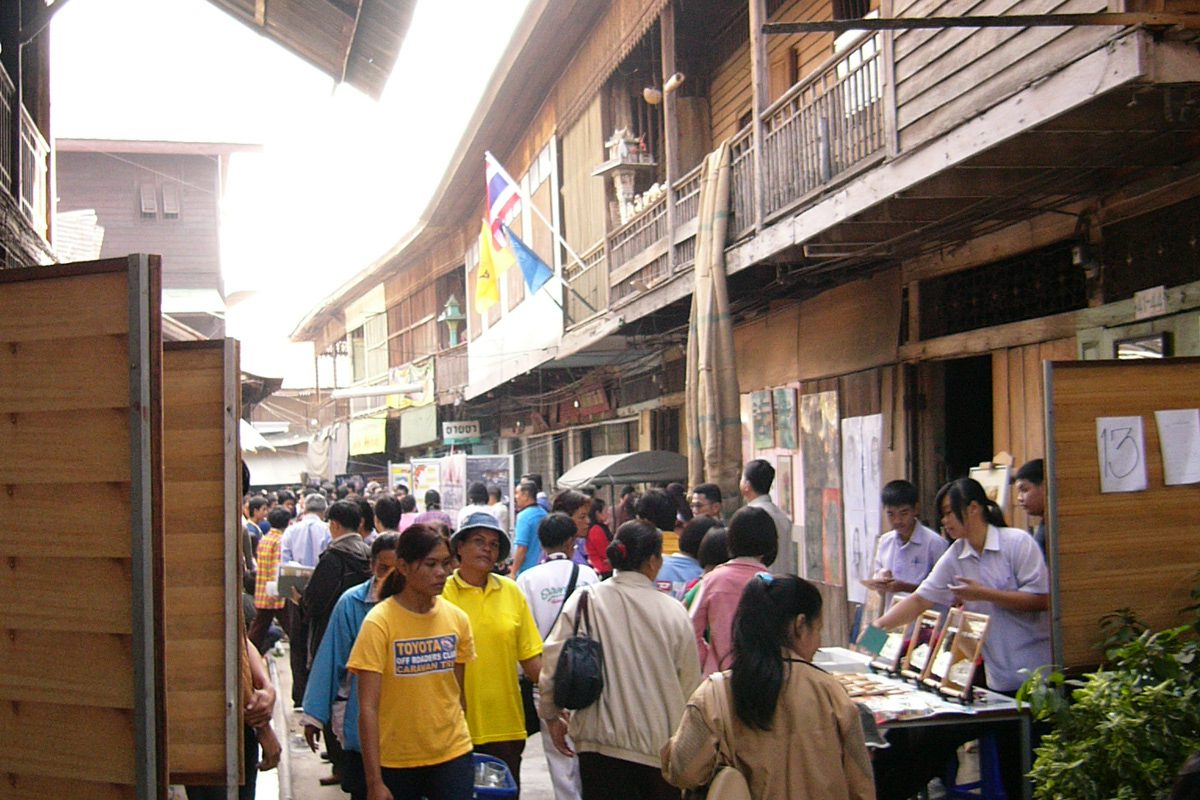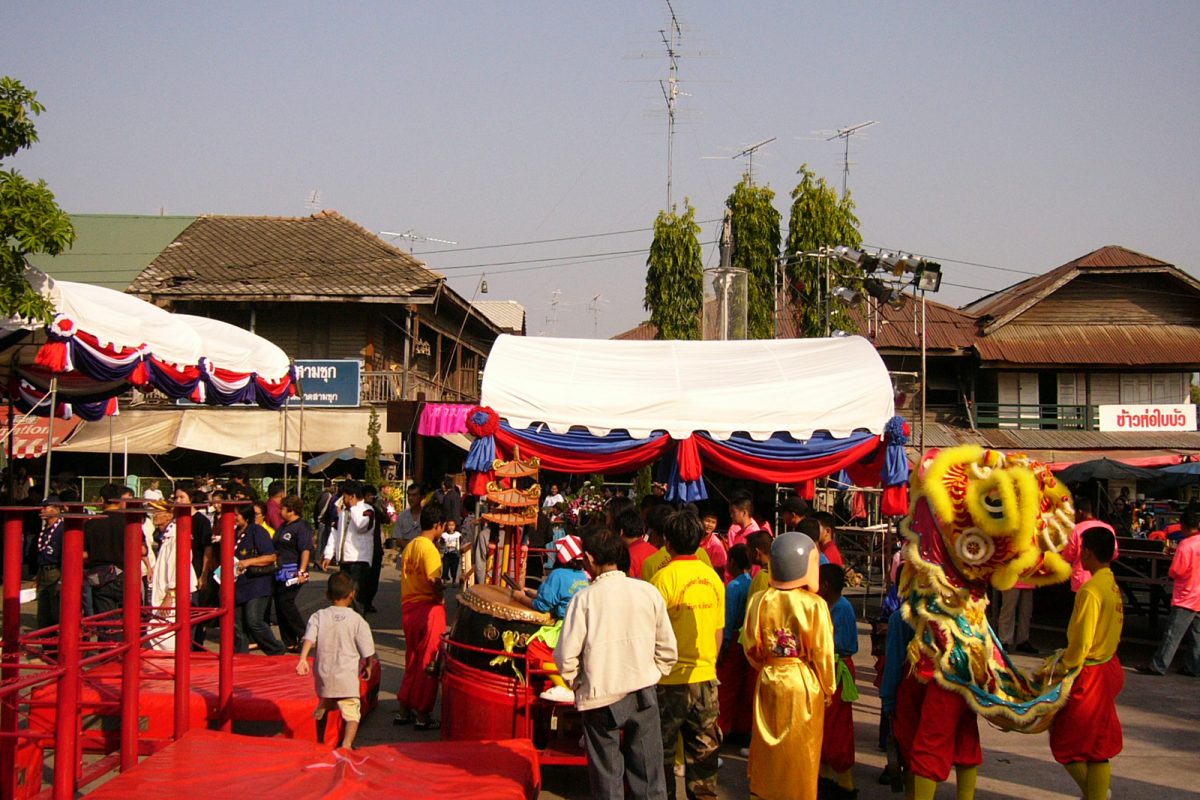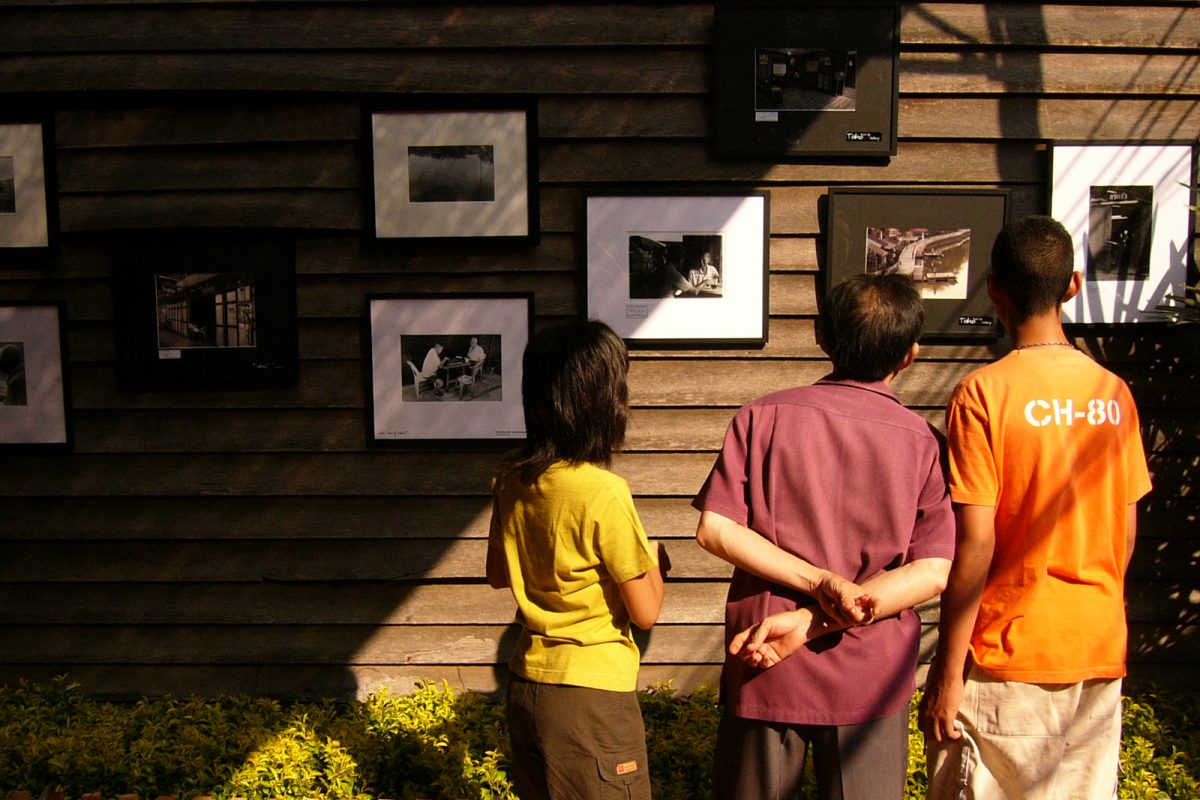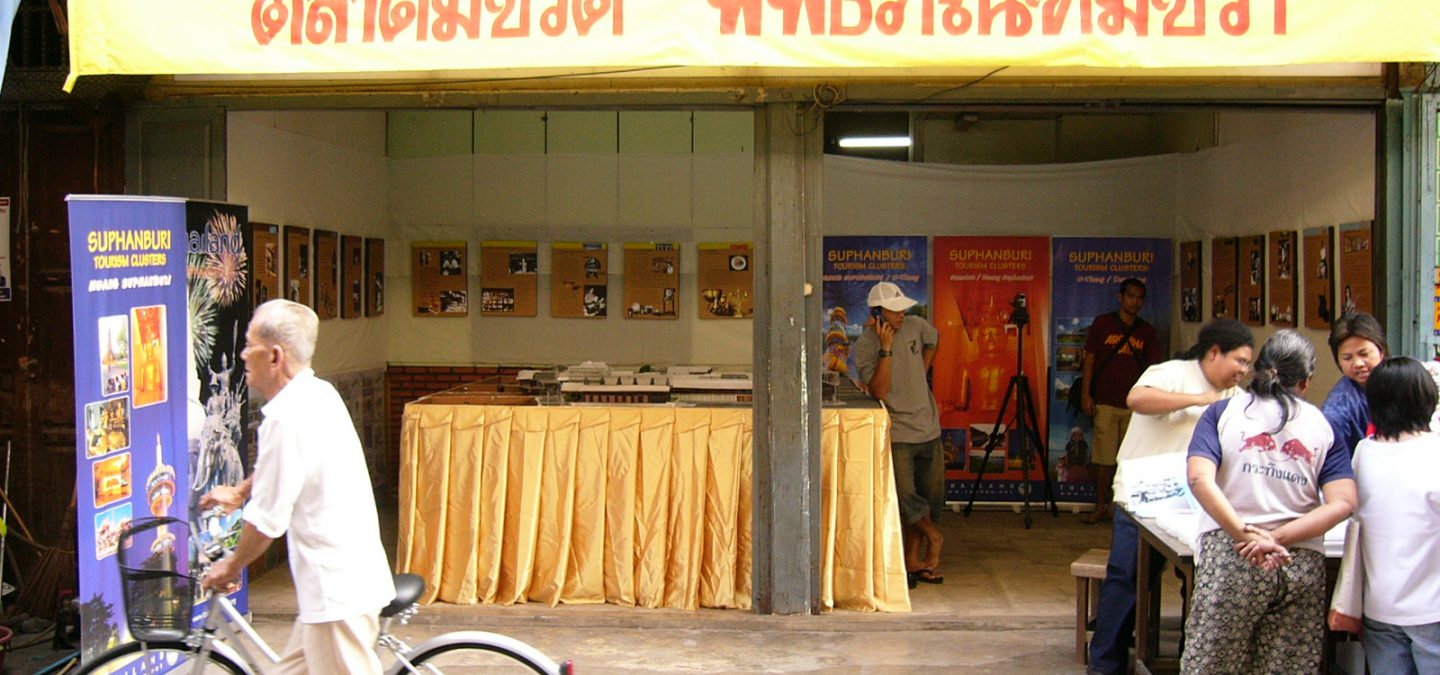
Keep up with our latest news and projects!

The Sam Chuk market comprised of 200 timber shophouses oriented towards the Suphan Buri River. Once it was a lively market and the rest-stop for those going to or from Bangkok by water, when rivers were the main channel of transport in Thailand. As time passed by, the market was in decline and dilapidated. It no longer attracts people to stop by, not to mention those who purposely came for shopping. Talking about Sam Chuk’s residents, the working-age people moved out to pursue their studies and careers in other big cities. Only the elders and kids were left in the community.
Also, the residents were facing a land tenure issue, since the land belongs to the Treasury Department who only offers a one-year contract to be renewed every year. This led to the lack of incentive for residents to upgrade or revive the market and houses due to land insecurity. Moreover, in 2003, there was a plan to evict the locals to renovate the buildings and upgrade the property values.
Chawanad (on behalf of ChumChon Thai Foundation at that time) and his team found how interesting of Sam Chuk community and started running the participatory process with the residents to explore and identify interesting issues, shared values, and shared vision that they have in common. In 3 years, the market has become vibrant again under the completely self-management of community residents.
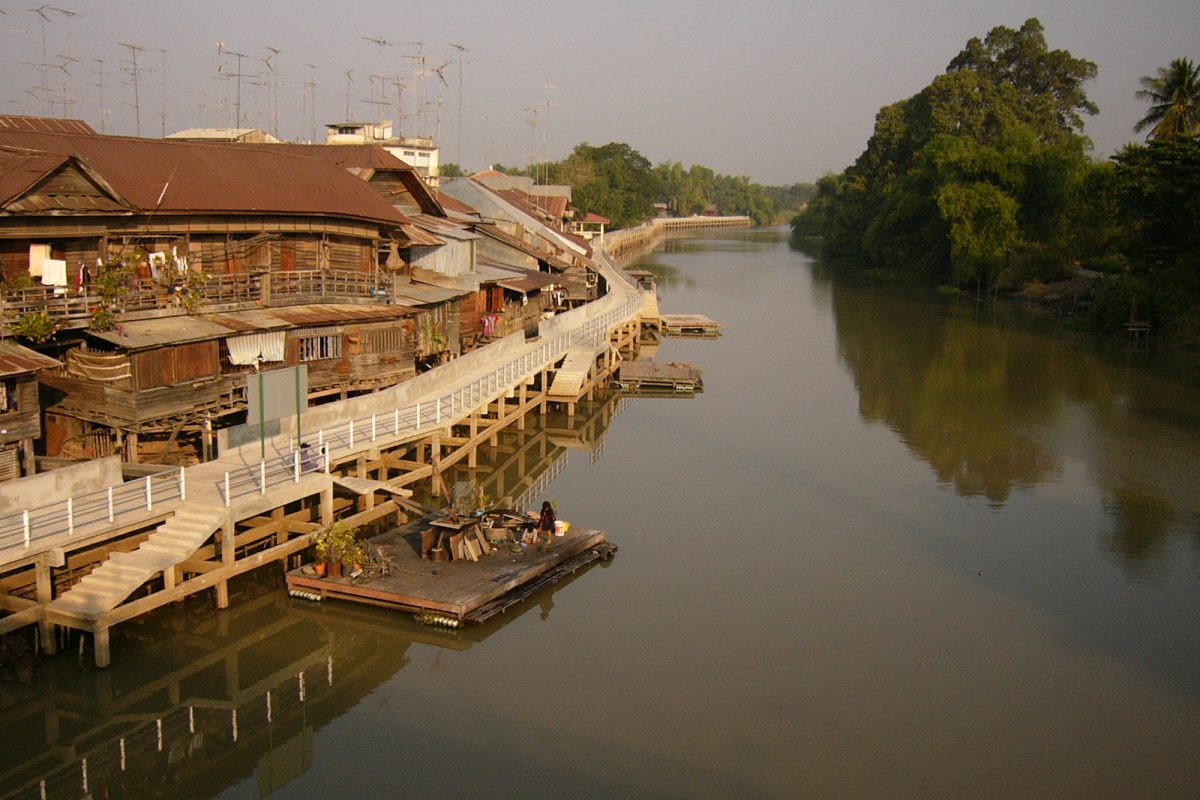
At first, the community’s intention was just to revive the community market for their own next generation, but after setting up the first living museum and a lot more visitors came to visit the market, tourism aspect started to come to their mind. With a short drive from Bangkok, the market has become widely-known in a very short time due to its 100-year history, well-preserved wooden houses, the great riverside landscape, and the uniqueness of local Thai food and sweets. It is not an overstatement to say that the trend of vintage markets in Thailand in recent years was initiated by Sam Chuk Market.
